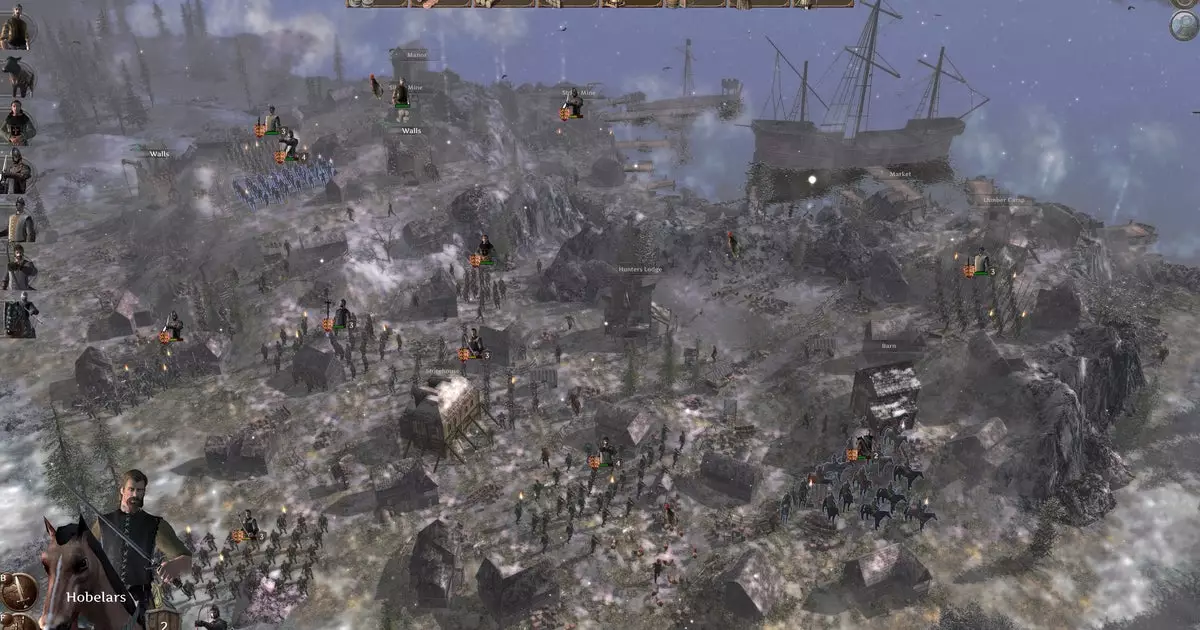The Crusades often evoke a myriad of reactions today, shaping not only historical narratives but also contemporary discourses within digital realms. These medieval campaigns, ostensibly initiated by Christian forces to reclaim the Holy Land from Muslim rule, have been reduced to oversimplified memes and politicized slogans like “deus vult.” The enduring legacy of the Crusades is a complex tapestry woven from threads of faith, conquest, and cultural exchange. Examining this historical phenomenon in the context of modern video games presents an intriguing opportunity to reflect on the way we engage with the past.
Games as a Lens for Historical Events
The introduction of games such as *Knights Of The Crusades* illustrates how interactive media can serve as both an educational tool and an entertainment platform. This grand strategy 4X game transports players back to a tumultuous era, allowing them to explore the intricacies of medieval warfare and diplomacy from both Christian and Muslim perspectives. The developers, known for their work on the *Kingdom Wars* series, have crafted an experience that aims to balance thrilling gameplay with the grim realities of historical events.
However, this raises a significant question: can games about the Crusades transcend mere entertainment to provide a more nuanced understanding of such a morally complex era? Or do they risk simply sliding into the glorification of violence and conquest? With gameplay that encourages players to raid villages and engage in territorial expansion, *Knights Of The Crusades* invites us to ponder if such mechanics can genuinely reflect the historical aftermath of these cultural conflicts.
The Narrative of the Crusades in Popular Culture
The popular depiction of the Crusades often leans heavily on sensational narratives, focusing less on the measured voices of historical analysis and more on the visceral aspects of battle and conquest. While *Knights Of The Crusades* offers a platform to explore these themes, it also risks fostering a simplistic view of crusading zealotry. The game’s mechanics may inadvertently underline the tendency of modern audiences to romanticize the era, allowing players to experience the thrill of conquest rather than contemplating the ethical ramifications behind such actions.
This dilemma reflects broader societal trends in how we engage with history. For instance, franchises like Assassin’s Creed portray the stark dichotomy of good versus evil but tends to simplify the motivations of factions involved in historical conflicts. The question remains: how do we reconcile our fascination with this tumultuous past while recognizing the very real consequences faced by those who lived through it?
Gaming’s Role in Historical Discourse
There is an opportunity for games to act as bridges between past and present, as well as between various aesthetic representations of history. The emphasis on unique culture representations through faction mechanics in *Knights Of The Crusades* claims to enrich the gaming experience. It serves as a reminder that every culture involved had distinct motivations and narratives that deserve exploration. This raises expectations for developers to handle historical content sensitively, integrating educational elements throughout the gameplay experience.
As gaming technology continues to evolve, we may have the chance to witness an ambitious endeavor to communicate the intricacy of the Crusades through nuanced storytelling, accessible to players of varying backgrounds. This dynamic interactivity may encourage gamers to reflect on the very nature of the conflicts they are partaking in, potentially igniting discussions about the consequences of religious conflict, colonialism, and cultural exchange.
Personal Journey in Crusader Gaming
While games such as *Crusader Kings* provide an expansive take on medieval politics and familial intrigue, they can feel overwhelming to players unfamiliar with their depth. The intricate systems, rich narratives, and tons of available choices can be daunting. My interest in exploring the Crusades through gaming remains heightened, yet I find myself hesitant—perhaps it reflects an underlying fear of tackling a period steeped in such complicated moralities.
Engaging with recommendations around games that examine this historical tapestry—from strategy titles to narrative adventures—could yield insights that challenge both my preconceived notions and the cultural legacy of the Crusades. A call to action for gamers and historians alike: let us delve deeper, seeking richer portrayals that spark understanding rather than just excitement. As we navigate this realm of the past, it is vital to remember the weighty narratives that lie behind our interactions on primitive battlefields and grand campaigns.


Leave a Reply